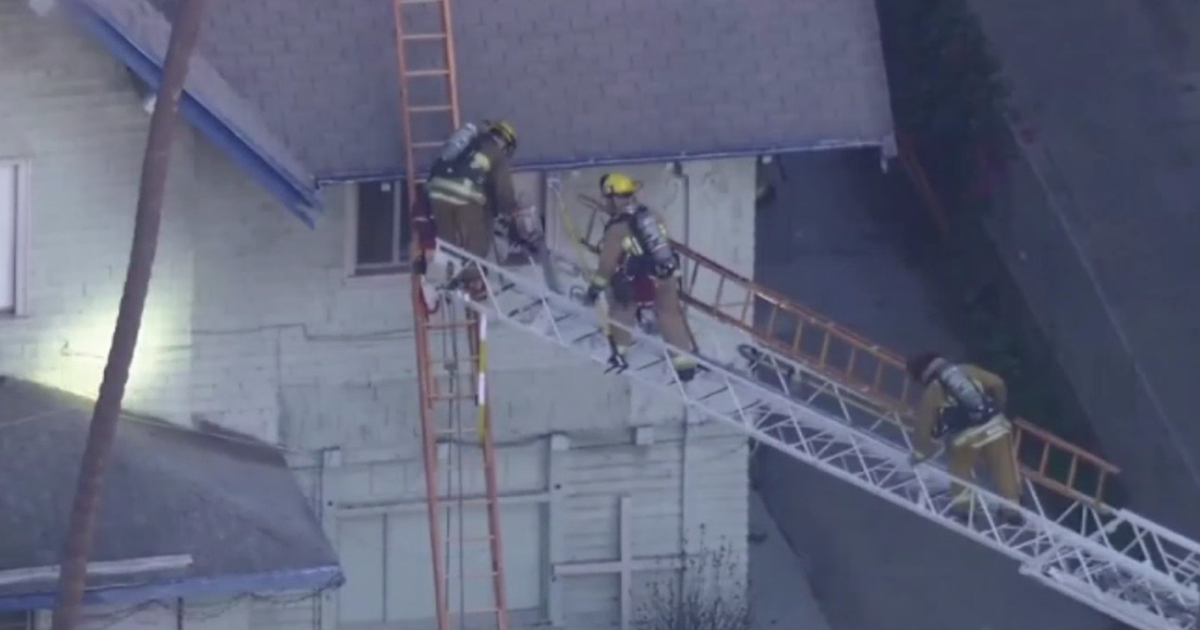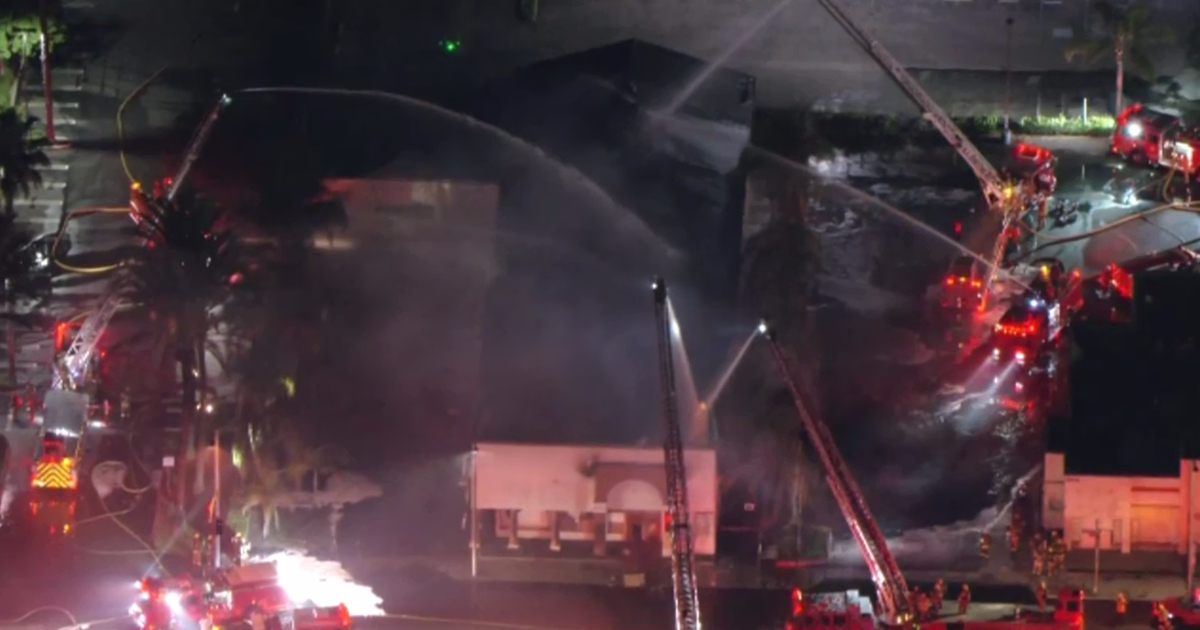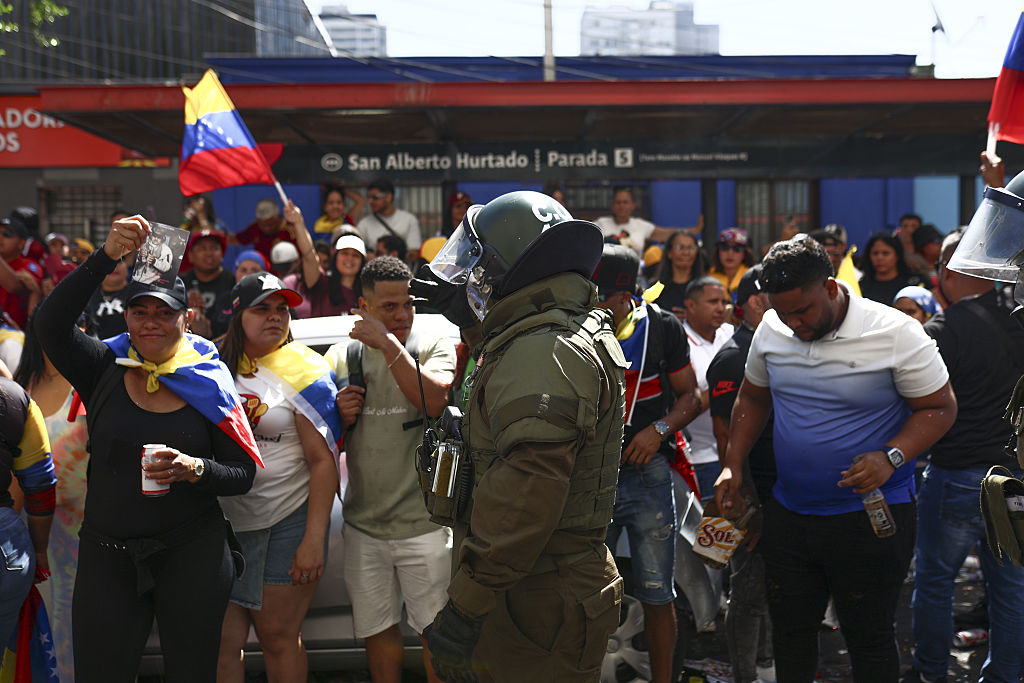Under Fire, Alongside The Fallen
What's it like to be fighting in Iraq, nearly two years into the war? 60 Minutes wanted to find out and joined up with the 2nd Battalion of the 5th Marine Regiment in one of the most hostile places in Iraq today. Correspondent Scott Pelley and a 60 Minutes crew spent two weeks with the Marines in November, and have just returned from another week.
The battalion, known as 2/5 Marines, is on its second tour in Iraq. For these men the resistance has turned out to be far deadlier than the invasion itself.
Last week Secretary of State Colin Powell called the war "a raging insurgency." That's what the Marines are fighting, under fire in Anbar province — the heart of the resistance.
Every morning the colors rise outside Whiskey Company, 2/5 Marines. To the flag, the Marines chain the dog tags of the men who died under the Stars and Stripes.
In the war to topple Saddam, the battalion lost one man. In the war on the insurgency it's lost 14 — most of them from Whiskey Company.
Cpl. Jake McCloskey won a purple heart for wounds suffered in September.
He says his second tour has been a lot harder than the first. "It's an enemy I can't identify right away. Last time uniforms made it a lot easier. These guys hide, they hide with the regular populous and it's very difficult to find them."
With 60 Minutes cameras present, a patrol in Ramadi was hit with a rocket propelled grenade, seemingly from nowhere.
Pfc. Josh Johnson was badly wounded.
2nd Lt. John McKinley, the patrol's commander, says, "Right now he's unconscious. Sounds like it came from the north, sir. From over our head. Roger, it sounded like it came from over our heads, don't know if it was a mortar or an RPG. Did it come from the north? Hey, how is he doc? What have we got. Hey let's not lose our minds here. Let's see this, roger, he's bleeding pretty bad out of his leg right now. We definitely need to get him out of here. He's definitely an urgent right now."
They did get him out. Johnson, with shrapnel in both legs, was medevaced to a combat hospital. He's home now, in the United States, making a full recovery—one of about 150 men wounded in the battalion since September. His comrades never found the man with the RPG.
"It's three dimensional. Every direction up, down, left, right, below you," says McCloskey. "I mean there's always a possibility that somebody could pop out somewhere, there's an IED [roadside bomb]. Sometimes you can't see them. A lot of times you can't see them so you've got to be constantly looking for something that maybe the day before that wasn't there." He figures you can tell if something isn't right two times in ten.
Whiskey Company corporals Jack Evers and Joseph Terwilliger told us if the Marines don't know what's about to happen, the people in town usually do.
"Most times before it happens the general populous is gone. They'll go inside and they lock up their shops and they leave, and nine times out of ten the people left out there are the insurgents or whoever it is attacking us, and it's us versus them at that time," says Terwilliger.
"Just drive by a group of locals and then ten minutes later you can drive back by and the same guy is walking by you, can be pointing an AK [automatic rifle] at you, or shooting an RPG, or setting an IED out alongside the road. So they're guerrillas out here."
The Marines look out on Ramadi from a base called Hurricane Point. Once the grounds of a palace, it is now home to several hundred Americans.
They venture out into the city only in combat patrols, magazines locked, chambers loaded, ready to fire. They leave the gates sealed in armored Humvees or ducking below the steel plate that they've welded on to open trucks.
In some parts of Iraq, children chase and cheer as Humvees go by. But you don't get much of that here. Ramadi is the capital of Anbar province, home of Iraq's Sunni minority, the once powerful supporters of Saddam.
60 Minutes joined the Marines along the main drag that they call Route Michigan with the battalion commander, Lt. Col. Randall Newman. His men run patrols to show presence, to search for weapons and to defend the offices of the U.S.-backed governor. The building is scarred by mortars, rockets and snipers.
"Ramadi is a town, advertised population coming in about 358,000," says Newman. "So I think if I've got my numbers right that's somewhere around the size of Kansas City. Off in the distance, you see that tall building you see with the charred-out window…that was where a sniper was that worked on us about a month ago."
The Marines have to defend this state capital from behind sandbags and bulletproof windows they pulled from Humvees.
"It's difficult when you're fighting an insurgency to probably say who owns anything on any given day," says Newman. "To win this type of fight, requires patience, presence and persistence."
Persistence to get past what has become the signature weapon in this war: what the military calls an IED, for improvised explosive device. It means a roadside bomb. Several Marines have not survived the drive on Route Michigan. So when they're leaving the base, the superstitious squeeze good luck charms.
Then they dash down Michigan—fast—scanning for trash or dirt that might hide a bomb. There's a feeling of determined resignation in the Humvee. It's either your day or its not. For a patrol on Route Michigan joined by 60 Minutes, the luck ran out.
The shockwave from an IED stopped a 60 Minutes camera. The wounds were relatively minor. The armored Humvee held up. But it's more hazardous in the open trucks. Marines have customized them themselves and call these weld wagons "Frankensteins."
From Hurricane Point to the governor's office is the gauntlet run where most of the IEDs on Route Michigan have been set. In fact, there was a time not too long ago when there were as many as a dozen IEDs on this road in just one day. Marines have nicknamed one intersection the "Axis of Evil" because of all the IEDs they've encountered there.
In November, 60 Minutes went on several combat patrols with Whiskey Company and their commander, Capt. Pat Rapicault.
He's an unusual Marine. Born in France, he came to the United States as a student. His accent is part France, part Mississippi. His men tease him about it and some of them call him Frenchie.
Rapicault, 34, and married, may have been born to be a Marine officer. He was first in his class in Ranger school. When we met him he'd already lost six men. And there was something we noticed about him. As he talked with us he never took his eyes off the potential threats to his Marines down the road. He told us the enemy was always watching, so you could never look away.
"We're constantly under observation from those guys. They know where we go. They know where we like to setup," he says. He avoids any kind of repetitions. "Change your route, change the buildings you use. Otherwise they come at you, booby trap those buildings and try to blow them up."
Rapicault "leads from the front," as the Marines like to say, and he's focused on getting the rest of his men home. Most often, Rapicault's men never see the enemy—they don't truly know who he is or what he's fighting for. They have never seen the enemy like this—that watches for an approaching American patrol and prepares to set off a roadside bomb. Iraqi photojournalist Ghaith Abdul-Ahad embedded himself with the insurgents and took pictures of them setting up their IEDs.
Abdul-Ahad describes the IEDs. He says the insurgents take a "couple of big mortar shells or artillery shells, they wire it with some explosive. They take the wire into the edge of the street and they hide behind a building." Then they "kind of put their heads into the ground and try to listen to the tanks coming."
The insurgents usually use cell phones, using local kids in the neighborhood as spotters for U.S. tanks.
"And they have spotters everywhere," he says. But he adds, "Most of the insurgency is — if I can use this word — is pathetic. Pathetic in the term that when they are waiting for the tank, and the tank is five meters away, and they kind of put the wires together and nothing happens, because it's an old battery or something. And that happens in some of the cases, you know. But other cases, they do kind of detonate things and do cause lots of damage."
Abdul-Ahad told us that some of the fighters he met were religious extremists from Saudi Arabia, Tunisia and Syria, but he claims that many others weren't fanatics at all. For example, a businessman was fighting because he despised the foreign occupation and its chaos.
"He wanted to end the occupation. And this is why he decided to sell off his business to fund a small cell of fighters, and to fight the Americans in Fallujah," Abdul-Ahad says.
In Ramadi the enemy has been pressing a vicious and effective campaign against American attempts to reach out to Iraq — especially undermining public works projects and the government.
Newman says Anbar province is on its third governor in just over a year. The first governor quit because insurgents kidnapped his family and threatened to kill them.
The mayor's office was recently attacked with an IED that destroyed the building.
Shortly after Newman's Marines delivered supplies to a hospital, a doctor was murdered. Newman says the killing was because the hospital accepted supplies from the Americans.
Even the Iraqi man who collected the trash on the base was murdered.
"They will try and target anyone, with fear and intimidation," says Newman.
Newman says the fear and intimidation is difficult to work against. "We're making headway slow but sure."
The headway is slow. For example, there won't be enough security for the election two weeks away, so the local government is keeping the location of polling places secret until the last minute.
Still, even with all the resistance, Whiskey Company's commander Pat Rapicault told us that its better to save Ramadi block by block than flatten it like Fallujah.
"I think the biggest difference between here and Fallujah is we could very well go ahead and do the same thing, bomb every building we get contact from, but then again that's not the purpose we were here for. We're trying to get this country rebuilt, this being the capital of the province."
Rapicault had warned us the enemy is adapting. And, sure enough, as the Marines got better avoiding IEDs, the insurgents turned to suicide bombers. We were with Rapicault's men heading down Route Michigan, nearly back to Hurricane Point, when a car packed with explosives pulled up next to one of Whiskey Company's Humvees and exploded.
His target, a fully armored Humvee, was destroyed. A Navy corpsman treated two survivors, but three Marines were killed, including the man who helped explain what combat is like, the captain some called, Frenchie, Pat Rapicault. In his company of about 160 men, there are now nine names in steel under the flag.
In recent days, Ramadi has been more settled. They're not sure why. At Hurricane Point the Marines are no longer fresh. Many have been to war twice now. But there is still determination. They go out the gate with purpose. They may not always know who they're fighting, but the commander told us they know what they're fighting for.
"Once the first drop of blood was shed by a Marine from this battalion and from the Marine battalion before us, we had too much invested in — in this city, in this country, in this cause — to turn our back on it. To do so would disrespect our fallen warriors that preceded us here."



